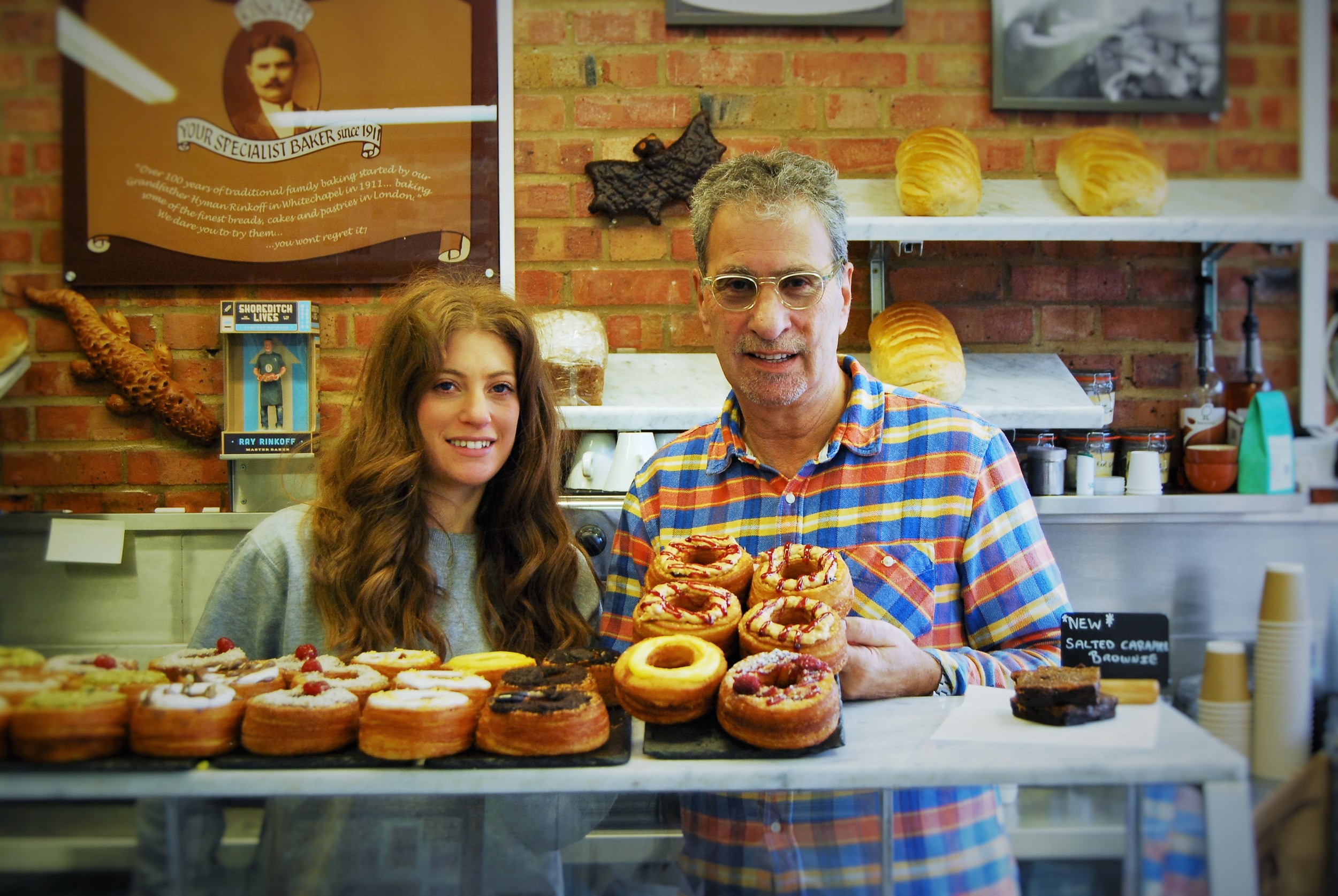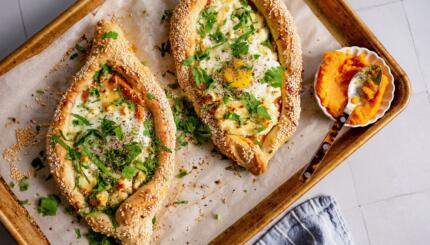The East End of London has long-been synonymous with Jewish immigrants who flooded to London during the pogroms of the 1800s. Much like the Jewish communities of Brooklyn and Philadelphia, they arrived off the boats speaking little English, with only the clothes that they were standing in, and even less money. They lived in densely populated areas close to the docks, and established themselves with trades that they brought over from their native Eastern Europe. Life was tough for these new East End immigrants, and those who had a trade in the area. But the community was tight and supported one another in their new endeavors.
For one family, little did they know that over 100 years later, their bakery would be a London institution, with the fifth generation of the family joining in 2023.
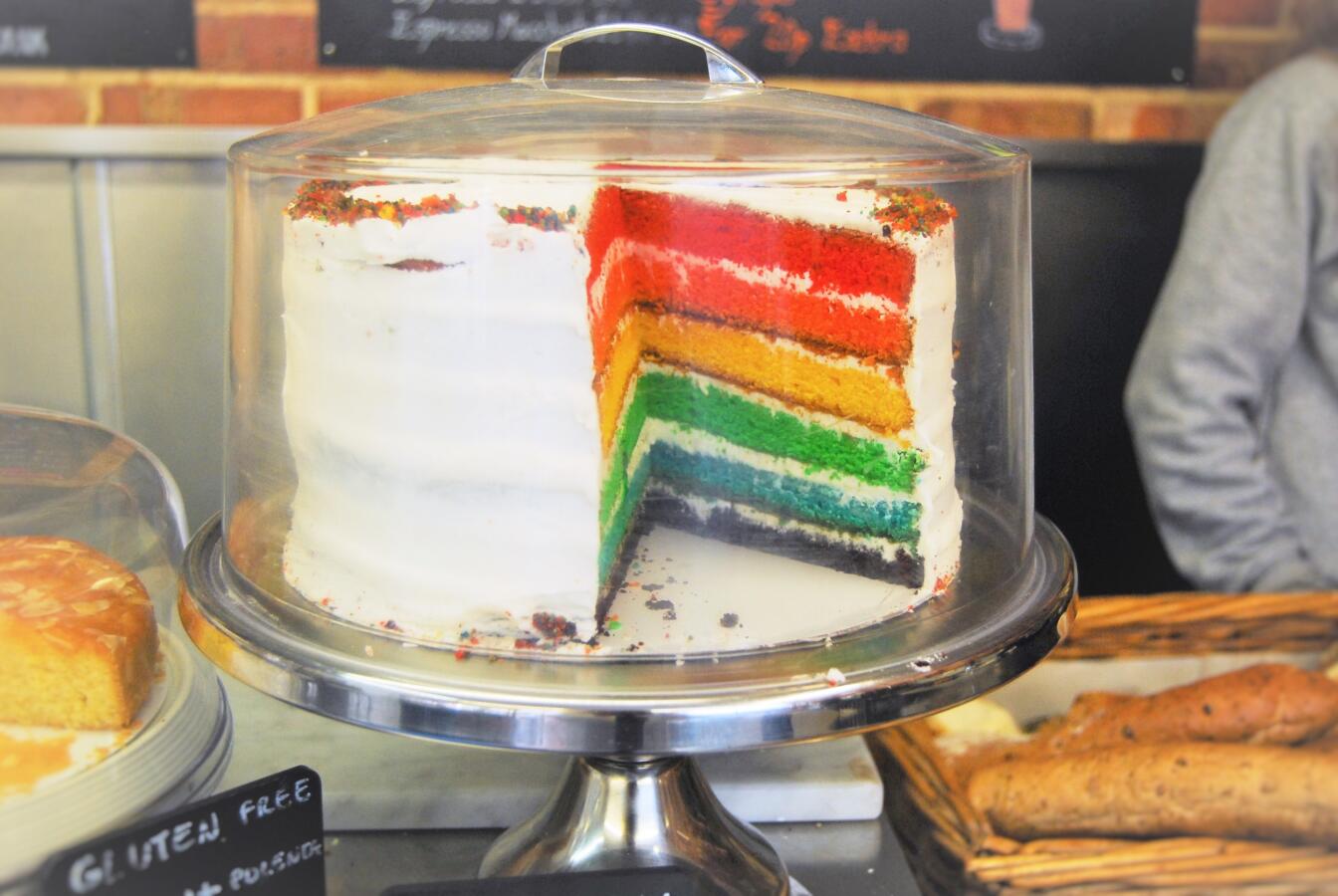
In 1903, Hyman Rinkoff arrived from Ukraine with his parents and a friend who was a baker by trade. He learned from his friend, and realized that he had quite the knack for making outstanding cakes. In 1911, at the tender age of 25, he opened his first bakery specializing in cakes on Old Montague Street. At the time, this was the hub of London’s newly formed Jewish community, just north of famous Brick Lane. Fame of Rinkoff’s cakes quickly grew, and it was not long before the bakery was supplying the entire community, and beyond.
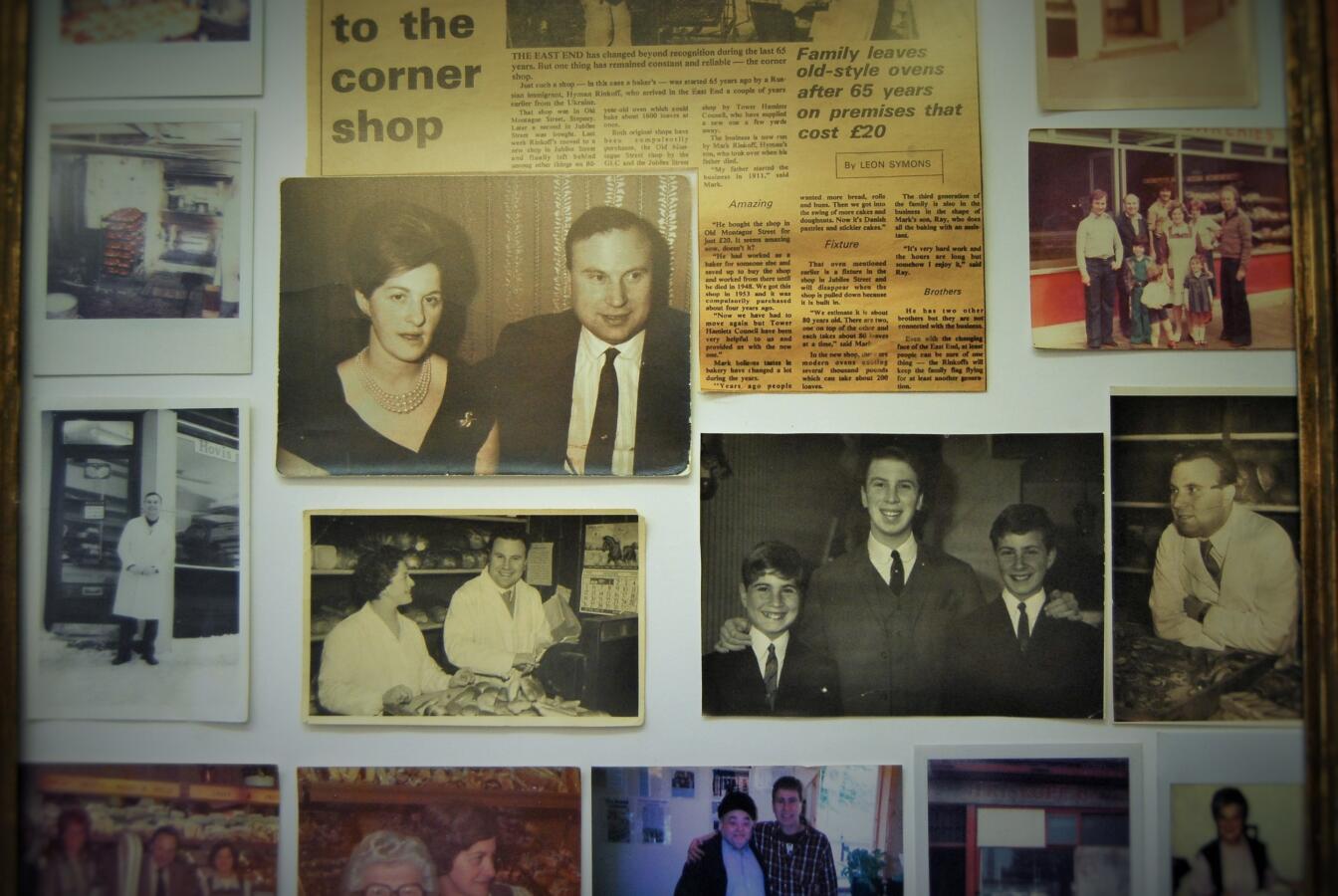
Hyman’s son, Max Rinkoff, was born in 1924 and joined the family business in the 1950s, as soon as he was able. Max’s flair for bread led to them opening a second bakery on Jubilee Street, the heart of Jewish life at the time. Over time, the location has evolved into more of a cafe, serving their delicious treats.
The Nosher celebrates the traditions and recipes that have brought Jews together for centuries. Donate today to keep The Nosher's stories and recipes accessible to all.
In the 1960s, they moved to Vallance Road, near to the infamous Kray twins’ (London’s best-known gangsters) childhood home, where they lived with their mother, Violet. It is well documented that the Krays were staunch supporters of the Jewish community that they had grown up side by side with. It is said that the twins were so taken with Rinkoff’s offerings, their friends would stock up on smoked salmon and cream cheese bagels to deliver to them when they were in prison.
The debate between beigel vs bagel rages on in England until today, but Jennifer Rinkoff, a fourth-generation Rinkoff who oversees product development, assures me that the “beigel” still reigns strong. In fact, it’s their plain beigel, rather than sesame or poppy seed, that sells out most days. (Although, with a crisp outside, fluffy inside and fried onion stuffing, nostalgic pletzl remains a favorite for those who remember it.)
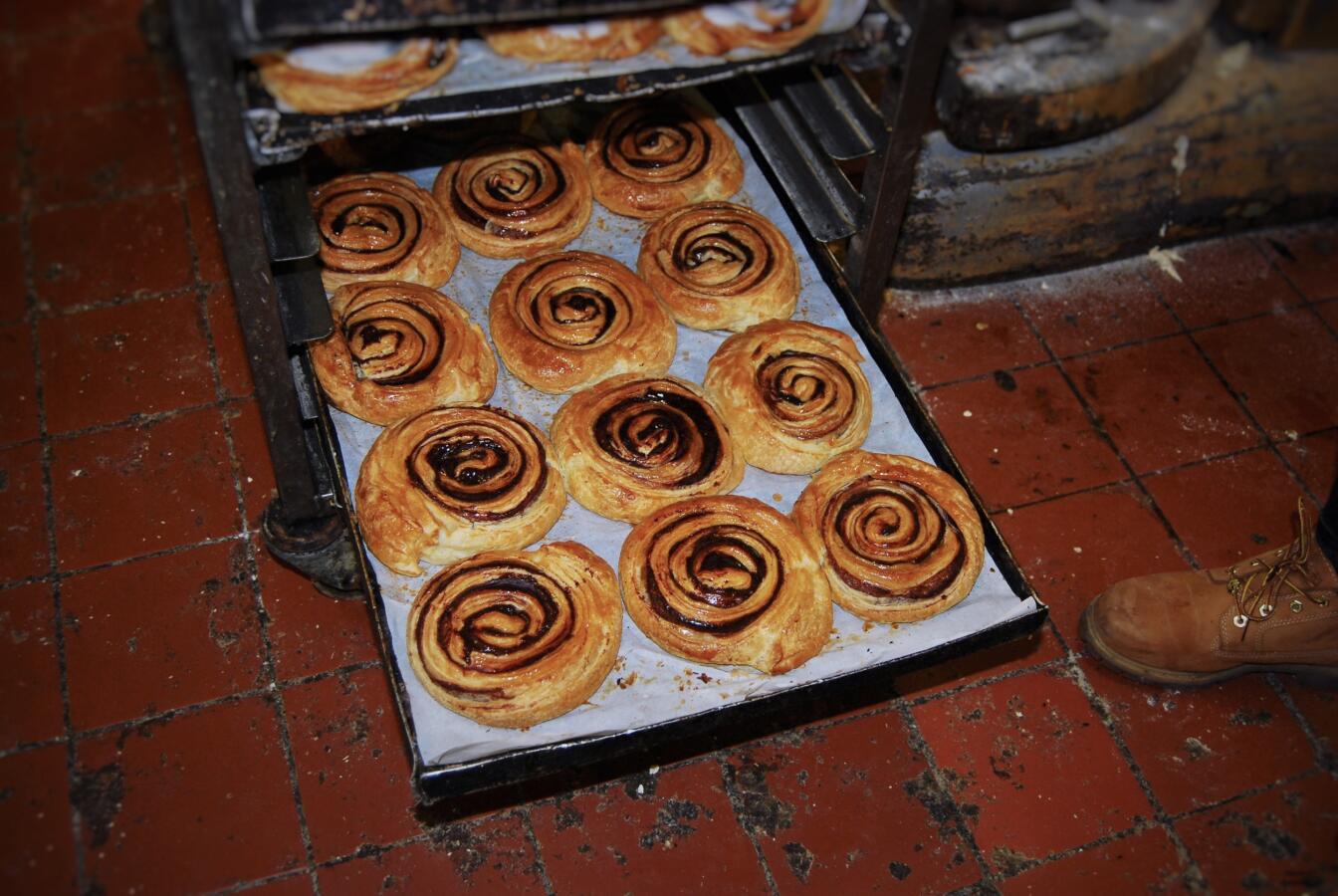
However, it is the Hamishe Cheesecake, the recipe for which great-grandfather Hyman brought over from Ukraine, that is still the most famous item at Rinkoff Bakery. This baked cheesecake studded with sultanas is a closely guarded secret recipe, known only by Max. Customers also love Hyman’s original black bread recipe, made with dark rye and sesame seeds.
While the bakery remains loyal to their original, tried and tested recipes, younger generations of the Rinkoff family have been instrumental in taking the business into the 21st century. Jennifer, for instance, introduced the cronut in 2013 after seeing it on YouTube, the same year that the pastry made its debut at New York-based Dominique Ansel bakery. Jennifer collaborated with her bakers to create their own recipe for this delicious cross between a croissant and donut, and convinced her parents to give them a go selling it. She posted it on social media and the rest is history. The salted caramel and pistachio cronuts are a sellout most days, but other British-inspired flavors such as cherry pie, toffee apple crumble and lemon drizzle — as well the American-influenced peanut butter and jelly cronut — draw in the crowds.
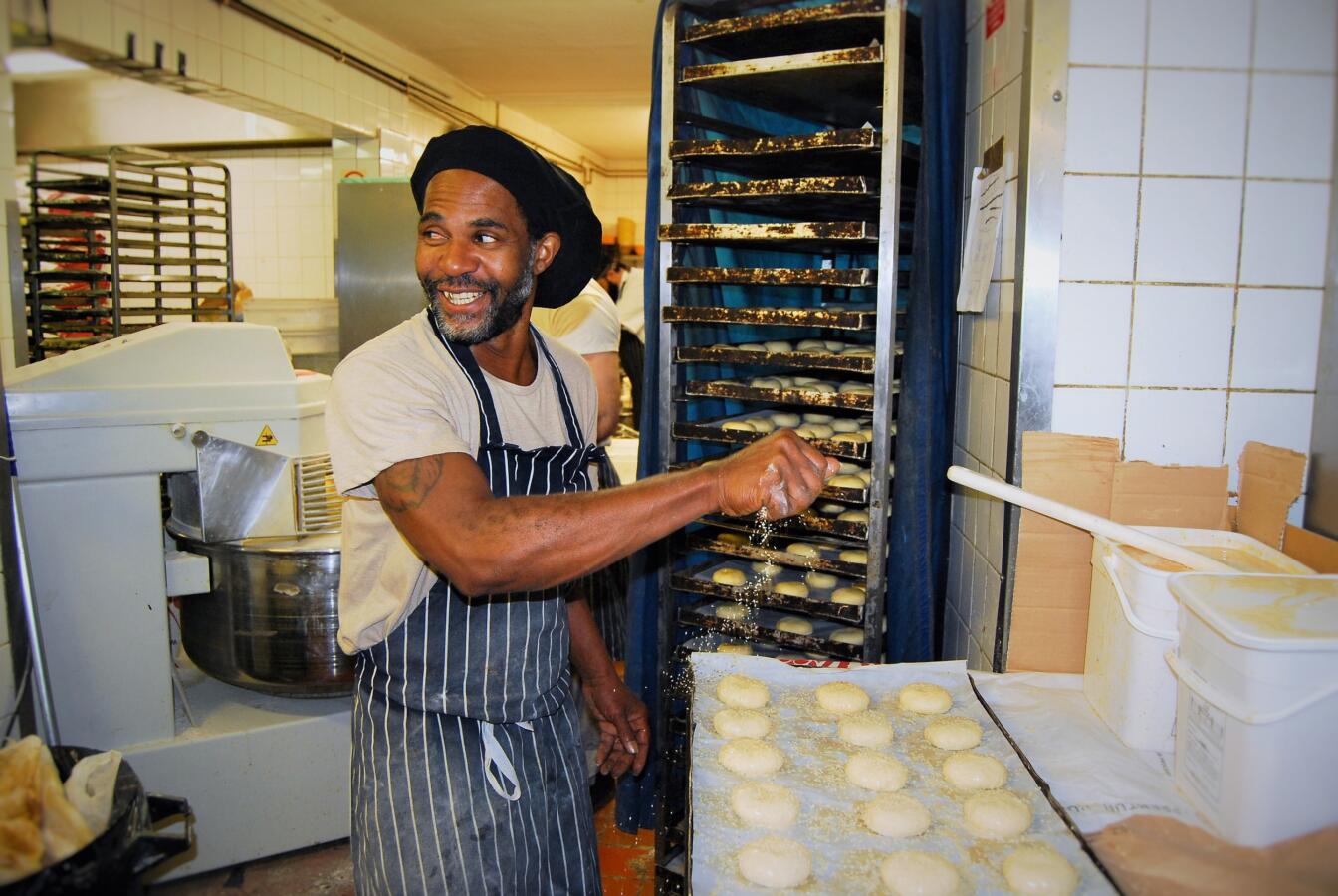
While the Jewish community has mostly moved out of the East End now, favoring the quieter, greener suburbs of North London, Rinkoff Bakery still proudly stands in London’s East End, where their grandparents (or great-great grandparents!) created this institution. I think it is safe to say that it will still be reigning strong in another 100 years.
